Entries tagged with “silicosis”.
Did you find what you wanted?
Tue 19 Nov 2013
Posted by admin under Dust, Exposure, Federal OSHA, OSHA, PEL (Perm Exp Limit), Silica, Uncategorized
Comments Off on Silica rule delayed
For better, or worse, the silica rule has been delayed, again. This delay is for an extension of the public comment period, which goes until December 12, 2013. Public hearings are set to begin on March 4, 2014.
Find OSHA here, with links to my previous post. A NPR story from February, 2013.
My views on this rule haven’t changed much: It’s still a mixed-bag. There are still overexposures to silica (see my pictures from the last 3 weeks). However, will the new rule change the behavior?
- Overexposures are still happening
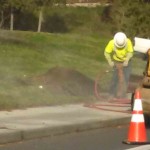
- Silica deaths have decreased over the past (without the new rule)
- Will the small employers (the ones who typically offend the most) comply? Or just wait to be cited?
But, my overwhelming thought is this:
- Any new rule will generate “noise” for the subject of silica. And, that’s a good-thing.
- This will drive:
- compliance
- changes
- innovation
- discussions
- awareness
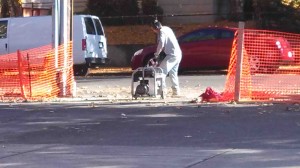
Mon 17 Sep 2012
Posted by admin under Air Monitoring, Asphalt, Silica
Comments Off on Silica in asphalt

For people who work with asphalt everyday, this may be a obvious statement: Silica is in asphalt.
There are two areas where this might be of concern: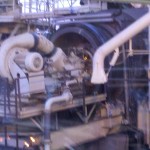
- During the mixing of the asphalt there is usually some ratio of rocks that are added to the product. The size of these rocks is where safety personnel should have concerns. If they are adding the smallest fraction of rock to the mix, you may have airborne exposures to silica. This size of rock is called P200 (or, using a 200 sieve screen to get anything less than 200 parts per inch). Usually this is seen during the transfer of rock from the loader or from the belt conveyor.
- The other method of exposure to silica in asphalt is if you cut it. Rocks may contain silica. When asphalt is cut, you incidentally cut through various rocks (contained within the asphalt). Silica (and dust) is released during the cutting. Please use water when you are cutting asphalt. Direct the water at the blade.

Mon 9 Jul 2012
Posted by admin under Asbestos, Lead, Management, Silica, Training
Comments Off on Construction Training Idea – add Silica
I was asked to perform asbestos training…and, “…maybe talk a little on lead”. However, I knew the employees needed to hear something totally different.
The firm requesting the training was a large excavation company that does a lot of road work. The training was at their bi monthly company wide meeting . I was given one hour.
So, my idea: Give them a quick overview of asbestos and lead, and then talk to them about silica. I called the training, “IH Health Topics in Construction”. And, as suspected, the questions that were posed all dealt with either: 1. “in my home I have…” or 2. silica and how to protect themselves.
I have made it my personal aim to talk about silica to as many employees as I can. I throw it into any training (even if I have just 5 minutes). Chances are, these guys WILL have overexposure to silica. Â The owner did not mind since I told him we were going to talk about a few different kinds of health issues in construction.
My suggestion: see if you can work Silica into your conversations and trainings.
Tags: construction, cristobalite, excavation, IH, quartz, safety, silica, silicosis, train, trained, training
Tue 26 Jun 2012
‘Tis the season for silica (here, and here too).
I had four observations about this picture,
- paper dust masks are totally inadequate for this task, and
- why isn’t there any engineering controls (water?, vacuum?), and
- why is the observer standing in the dust plume?, and
- what does the employees do with their clothes after work?
Please be safe out there.
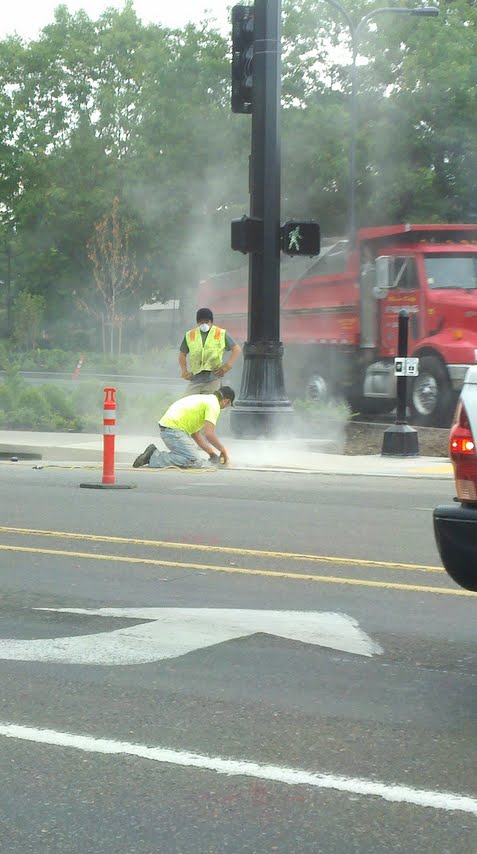
Fri 1 Jun 2012
I had posted a few weeks ago about a recent sighting of silica exposures during concrete/asphalt cutting. Then, today, at a stoplight…there it is.
A worker was using a gas powered hot saw (cut off saw) with an abrasive blade to cut a concrete pipe. No respirator.
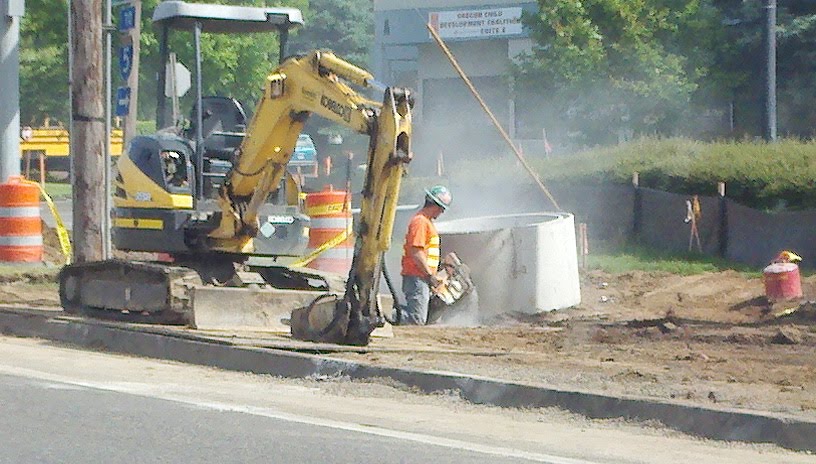
If you were me, what would you do? (Leave your answer in the comments section)
- call the company main office?
- stop and caution the employee?
- call OSHA?
- take a picture and post it for the world to see (check…ha)
- offer to buy a respirator
- perform air monitoring for them? (for free, of course.?)
Thu 10 May 2012
In  the trainings I perform for employers, I try to explain to them that there IS overexposure to silica on their jobsite. I tell them that if I could be at their site everyday, and be ready to perform air monitoring at a moments notice, I could find overexposures.
Here is an example of a road crew cutting asphalt with a concrete saw. I’m sure it was a small cut (since they were not a concrete cutting subcontractor, and it was a tiny little saw). But the haze you see is the dust plume from the cutting.
I just happened to drive by and be stopped at a red light when this occurred. I know, I probably shouldn’t have touched my phone (while in my car) to take a picture…but I couldn’t resist. And, with that same train of thought, the road construction crew probably thought, “it’s just a small cut and it will only take 5 minutes”. So, neither of us are innocent
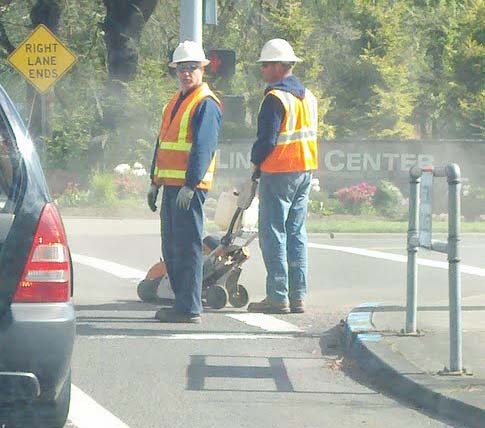 .
.







